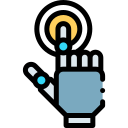Body Responses: When the Nervous System Takes the Wheel
Poor sleep raises cortisol and amplifies amygdala reactivity, making small triggers feel like huge threats. Then worry about sleep becomes its own trigger. Create a gentle wind-down: dim lights, warm beverage, and consistent timing. If you try this tonight, share how it went tomorrow for accountability.
Body Responses: When the Nervous System Takes the Wheel
Butterflies, nausea, or appetite swings are real signals from the gut-brain axis. Stress changes digestion speed and microbial balance, which can affect mood. Slow, mindful eating and steady meals help. Notice which foods calm you. Comment with one snack that steadies your energy during tense afternoons.


